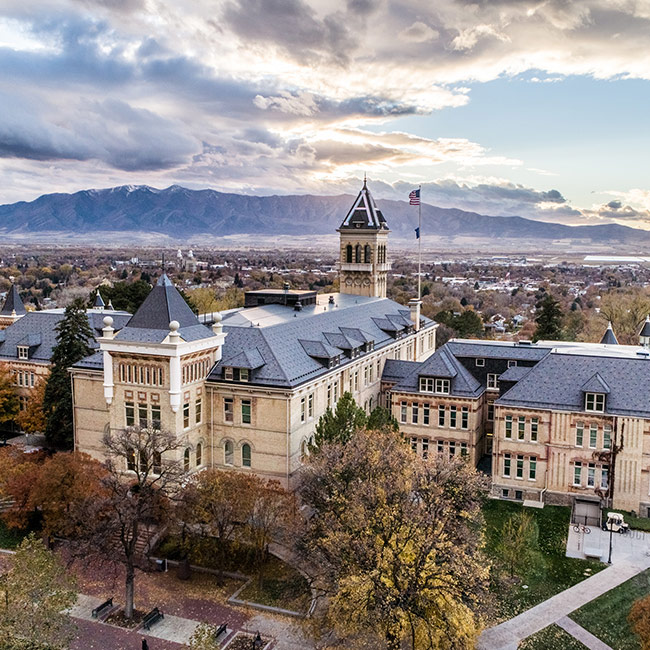About This Degree
The master’s degree in applied economics is a preparatory degree for students wishing to do applied work in areas where economics is the focus of the career.
What You Will Learn
This is an applied degree as opposed to a research degree, meaning students receive the education necessary to enter the workforce in economic programs, or work as consultants in government areas, nonprofits, and private sectors.
Specialization:
Students must choose an emphasis in one of the following areas
Natural Resource Economics:
This specialization focuses on solving environmental problems and natural resource management, all in relation to economics.
Regional Economic Development:
Students in this specialization study how communities and regions develop economically.
Agricultural Economics:
In this specialization, students study agricultural policy, production, and marketing.
Climate Adaptation Science (Applied Economics MS):
The Climate Adaptation Science specialization provides students with experiences in actionable science through internship and research experiences. Program includes interdisciplinary research to identify adaptive responses to changing climate extremes and two-part internships with agency, NGO, and industry partners. In a first internship, students contribute to projects and learn the workplace cultures and science needs of the host. The internship experiences inform interdisciplinary climate adaptation research by student teams. In a second internship, students share science results and tools with the host organization and help put that science into action.
ADVISING
At a Glance
College: College of Agriculture and Applied Sciences
Department: Applied Economics Department
USU Locations:
- Logan campus
Faculty: View profiles of faculty members on the department directory.
Program Requirements
Career And Outcomes
Career Opportunities
This degree prepares students for positions in:
- Industry
- Private consulting firms
- Regional and national policy-making agencies
- Private, not-for-profit organizations
- Community/regional economic planning and development agencies
Job Outlook
USU Locations

LOGAN CAMPUS
Admission
Admission Requirements
Prerequisite course work for all Masters Degree programs in APEC:
B.S./B.A. in Agribusiness, Agricultural Economics, Applied Economics, Economics, Environmental/Natural Resource Economics, or a closely related degree.
Or at a minimum evidence of the following coursework:
- Microeconomic principles
- Calculus
- Basic Statistics
- Intermediate/Managerial Microeconomics or comparable course
Application Requirements:
- Complete the online application
- Pay the $55 application fee
- Score at or above the 40th percentile on the GRE
- Have a 3.0 or higher GPA on your last 60 semester or 90 quarter credits
- Provide transcripts of all college/university credits
- Provide three contacts for letters of recommendation
International students have additional admissions requirements.
Deadlines
The department has the following application deadline for students wishing to receive funding:
- Fall semester – January 31
The deadline for admission without funding is:
- Fall semester – June 30
Program Requirements
Although it is not required, many students in this program choose to participate in an internship. Recently, students have found internships at statewide environmental advocacy groups, municipal economic development agencies, and nationally recognized macroeconomic consulting firms.
Plan Options
Students can receive the MS by pursuing one of two options:
- In the Plan A option, students complete graduate-level coursework and must write a thesis for their degrees.
- The Plan B option requires the production of a paper or creative work of art and is expected to reflect equivalent scholarship standards as a thesis.
Students pursuing the MAE are not required to write a thesis or research paper. The degree requires only course work.
Financial Aid
The department offers a limited amount of competitive research assistantships with a tuition award for out-of-state students. As the availability of these assistantships varies from year to year, students should check with the department for more information.
A variety of funding opportunities are available on the graduate school website.
For students pursuing the MAE, the department does not offer any research assistantships or tuition awards.
Students may be eligible for other funding opportunities, including fellowships and scholarships.
Take The Next Step
How to Apply
View our step-by-step guide on how to become an Aggie.
Request Information
Contact the School of Graduate Studies to ask questions or receive more information.
Cost and Funding
Calculate the cost of graduate school and learn about funding opportunities.
You May Also Be Interested In

Economics
Study theories of economics and prepare yourself for an impressive PhD program in economics and finance as you earn your master’s degree.

Economics (Applied Economics Department)
Study applied economic theory and quantitative analysis, focusing on environmental economics or regional economic development.

Master of Data Analytics
Become a professional in the world of big data.

Master of Financial Economics
Prepare for the CFA exams in this terminal, professional degree and work with faculty with professional credentials and real-world experience.

